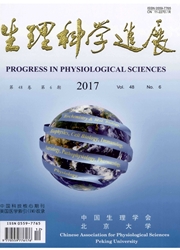

 中文摘要:
中文摘要:
Salusins是一类新发现的心血管活性肽,包括由28个氨基酸组成的salusin-α和20个氨基酸组成的salusin-β。Salusins广泛分布于人和大鼠的多种组织和器官,具有降低血压、减慢心率、抑制心肌收缩、减轻心脏缺血损伤、促进心肌细胞肥大和血管平滑肌细胞增殖等一系列心血管效应。值得注意的是,作为由同一前体产生的两种多肽,salusin-α和salusin-β在动脉粥样硬化的发生发展中具有相反的作用。
 英文摘要:
英文摘要:
Salusins are newly discovered cardiovascular active peptides, including salusin-a and salusin-β, which are peptides containing 28 and 20 amino acids respectively. Salusins are widely distributed in tissuse and organs of human and rat, and have a series of cardiovascular effects, including lowering blood pressure, slowing down the heart rate, inhibiting myocardial contraction, reducing cardiac ischemic injury, and promoting hypertrophy of cardiomyocytes and proliferation of vascular smooth muscle cells. It is noteworthy to mention that salusin-α and salusin-β are polypeptides produced by the same precursor and play opposite roles in the development and progression of atherosclerosis.
 同期刊论文项目
同期刊论文项目
 同项目期刊论文
同项目期刊论文
 期刊信息
期刊信息
